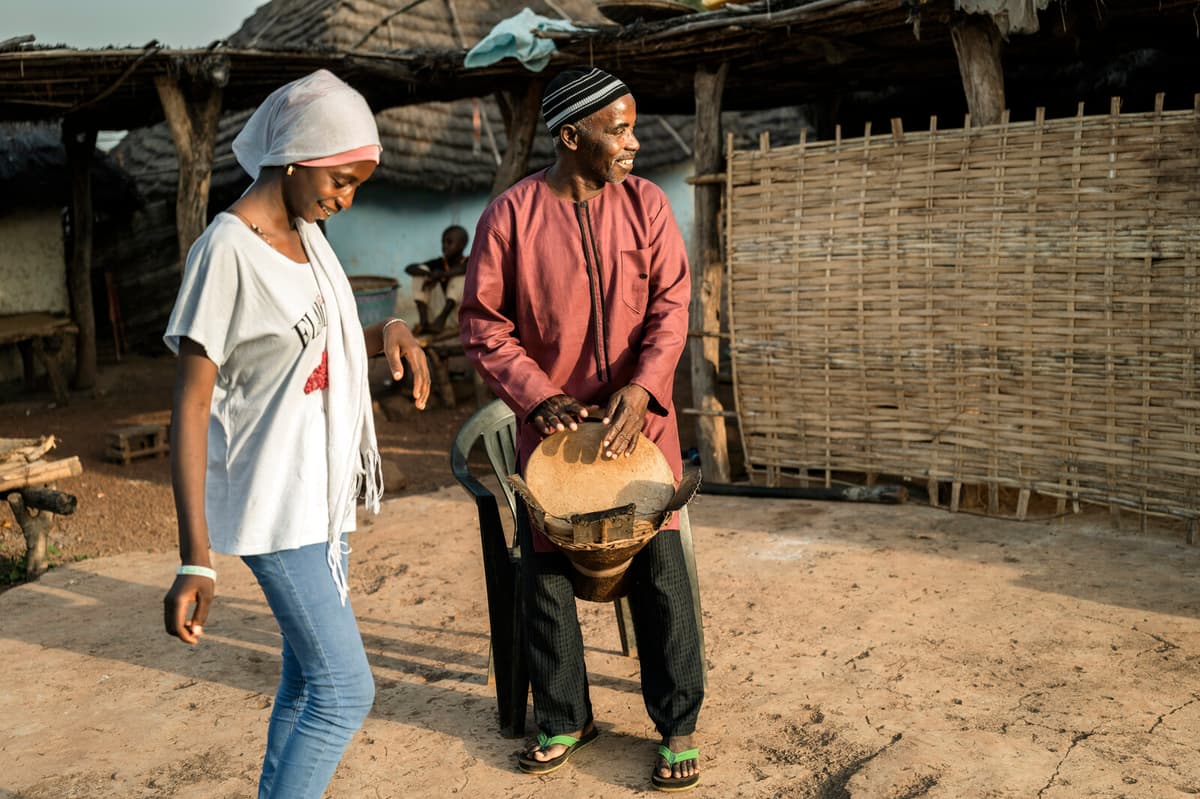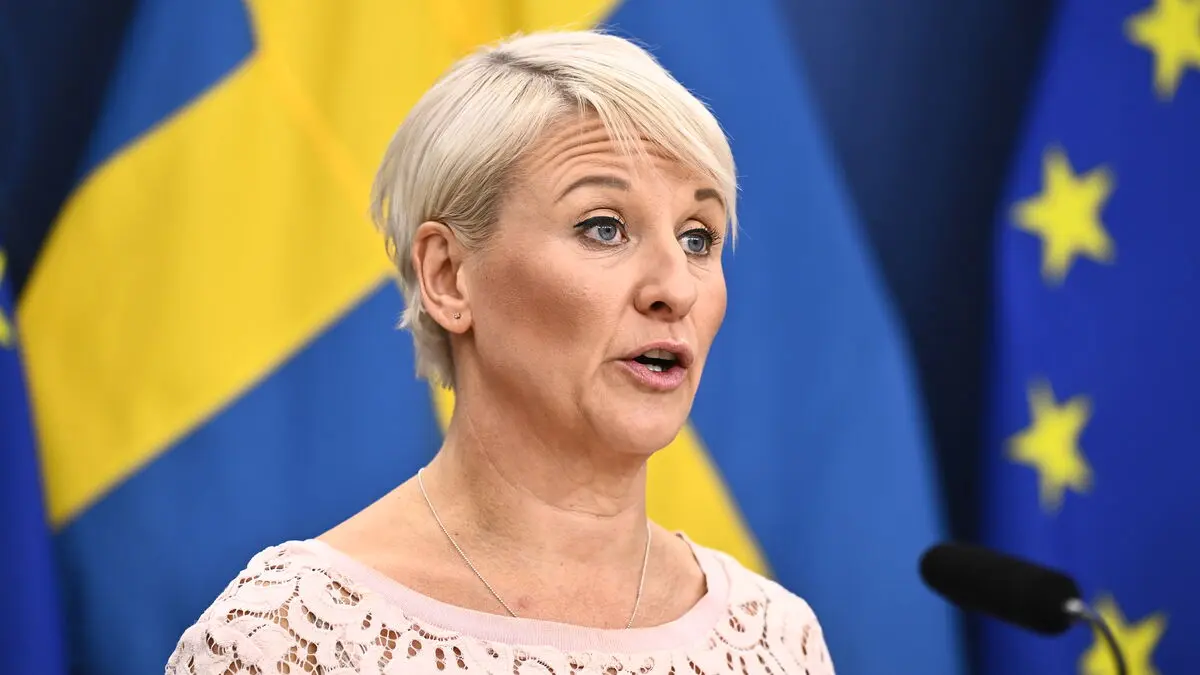Over 230 million girls and women live today with the consequences of female genital mutilation in several countries in Africa, the Middle East, and Asia. In some places, the practice has decreased, but since the population growth is high in many countries, more and more girls are still affected.
However, in some smaller communities in southeastern Senegal, the tradition has almost disappeared since a group of fathers began to challenge the norms. They work to protect girls from female genital mutilation and fight for their right to go to school.
Fatou's father, Bamba, is a traditional storyteller, radio presenter, and farmer. He is part of a group that aims to support men's conversations about girls' rights, equality, education, and the harmful consequences of female genital mutilation.
Bamba thinks that female genital mutilation has no place in an increasingly modern society. Previously, it was believed that an uncircumcised woman had no value, he says.
I used to think it was normal for a girl to be circumcised, it was something that had to be done, he says.
"Only Harmful"
The group started five years ago, initiated by, among others, the organization Plan International. It includes key individuals who can have a significant influence, and they receive information about the risks and damages that female genital mutilation entails.
Female genital mutilation is about deeply rooted social norms to control girls' and women's sexuality and bodies, says Carin Atterby, an advisor at Plan International on protection and safety issues for children and youth.
She emphasizes that female genital mutilation is not due to a particular religion or culture, and that there are misconceptions about it being hygienic.
And I cannot stress enough: there are no health benefits to female genital mutilation. It is only harmful, says Carin Atterby.
New Tradition to Say No
Village leader Abdourahmane is part of the same men's group as Bamba. He says that if parents today were to circumcise a daughter, they would be reported to the authorities, but he is not aware of any cases in recent years.
The new generation thinks that female genital mutilation belongs to old times. Now, the old traditions are disappearing with the older generation. Our new tradition is to say no to female genital mutilation, and it will not change, he says.
A female genital mutilation can take many different forms and involve different types of procedures. Often, it involves the removal of the external parts of the genital organ, either partially or completely, and the victims can experience extremely severe consequences, including pain, heavy bleeding, risk of infection, problems with healing, lifelong physical and psychological problems, and death.
Most girls are circumcised when they are small. Many when they are just a few days or weeks old, some when they are 15 years old.
Changing Norms
Many countries where female genital mutilation is practiced also face many other significant challenges.
"Ethiopia has consistently made progress, but climate shocks, diseases, and food insecurity make it difficult to reliably deliver programs to support girls," Unicef wrote in a report last year.
At the same time, there are reports of progress in many places, and attitudes towards female genital mutilation are changing. According to the report, two-thirds of the population in African countries where female genital mutilation is practiced are against the practice.
Since we are talking about questioning and changing norms, attitudes, and behaviors, long-term work is needed. This does not happen overnight, says Carin Atterby.
She highlights the importance of working with information at different levels in society, locally and nationally, and introducing legislation in cases where it does not exist.
And if it exists, one needs to spread knowledge about the legislation, she says.
"Abhorrent Practice"
Around 4 million girls worldwide are subjected to female genital mutilation every year, equivalent to nearly 11,000 per day, several hundred per hour. Of the over 230 million women who are currently circumcised, more than half, 144 million, are in African countries, over 80 million in Asia, and over 6 million in the Middle East, according to a Unicef report.
UN Secretary-General António Guterres calls female genital mutilation an "abhorrent practice".
"Let us come together to make female genital mutilation history and ensure a brighter, healthier, and more just future for all women and girls everywhere," he says in a statement on the occasion of the International Day of Zero Tolerance for Female Genital Mutilation.
Over four million girls worldwide are circumcised annually, according to estimates.
In total, it is estimated that 230 million women are circumcised globally. In Sweden, the number is estimated to be 38,000, but the dark figure may be large.
Female genital mutilation is currently documented in 92 countries in Africa, Asia, the Middle East, Eastern Europe, and South America. Somalia has the highest rate of female genital mutilation in the world.
The World Health Organization (WHO) divides female genital mutilation into four different types, depending on how much of the clitoris and labia are removed. In some cases, "pricking" also occurs, where the genital organ is pierced, cut, scraped, or burned. Female genital mutilation is often performed unsterilized without anesthesia, with a knife, a razor blade, or a glass shard.
An unknown number of girls die annually as a result of the procedure. Infections and injuries to the urinary tract, cysts, fistulas, and difficulties with urination are common complications, as well as psychological illness, complicated deliveries, and difficulties with sexual life.
Sources: Unicef, WHO, Socialstyrelsen, Sida, Plan International






